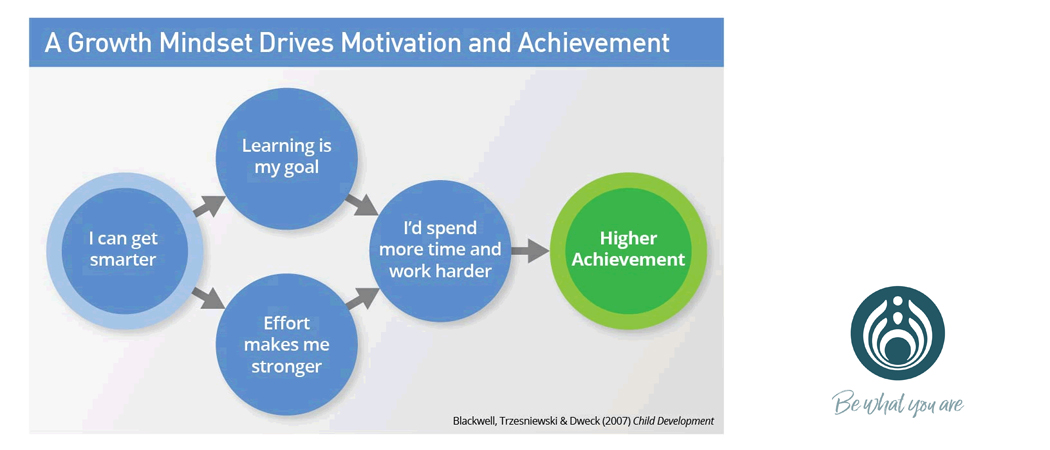Understanding Growth Mindset: Unlocking Your Potential
You’ve likely heard the term ‘growth mindset’ before, but do you truly understand how it can shape your life and success? This powerful mindset can help individuals thrive and achieve long-term success, regardless of challenges. But what exactly is a growth mindset, and how does it compare to the alternative?
In this article, we’ll break down the concept of a growth mindset, discuss its opposite, and explore how adopting this mindset can significantly enhance your personal and professional life.
What is a Growth Mindset?
A growth mindset, as popularised by psychologist Carol Dweck, is the belief that abilities and intelligence can be developed through dedication, hard work, and learning. People with a growth mindset see challenges as opportunities for growth, believe they can improve over time, and are driven by perseverance and a love of learning.
But, before we dive deeper, let’s explore the opposite of a growth mindset: the fixed mindset.
Fixed Mindset vs. Growth Mindset
What is a Fixed Mindset?
In contrast to the growth mindset, individuals with a fixed mindset believe that their abilities – whether it’s intelligence, talent, or skills – are innate and unchangeable. They tend to view themselves as either “smart” or “dumb,” and this belief often limits their potential.
People with a fixed mindset are typically risk-averse, avoiding challenges because they fear failure. They may feel that a setback or poor performance confirms their belief that they lack ability or intelligence. As a result, they often avoid situations that could expose their weaknesses or lead to failure.
Interestingly, many successful individuals can exhibit signs of a fixed mindset, particularly in environments where there’s a constant need to prove themselves. These individuals often feel compelled to seek validation and approval, especially when it comes to their intelligence, talents, or character. Their internal dialogue often revolves around questions like: “Will I succeed or fail? Will I look smart or dumb? Will I be accepted or rejected?”
While society often values traits like intelligence, talent, and personality, a fixed mindset focuses too heavily on these traits as fixed characteristics. This can limit growth and learning.
What is a Growth Mindset?
On the other hand, individuals with a growth mindset embrace the idea that abilities and intelligence are not fixed traits. Instead, they believe that with dedication, effort, and the right strategies, they can develop their abilities over time. Talent is seen as just the starting point – not the final destination.
A growth mindset opens up a world of possibilities. It encourages individuals to take on challenges, persist through difficulties, and enjoy the process of learning. People with a growth mindset are not afraid to fail. They see failure as an opportunity to learn and grow, rather than as a permanent reflection of their abilities.
The Power of Growth Mindset
A growth mindset fosters resilience, creativity, and problem-solving skills. Rather than feeling stuck or resigned to their circumstances, people with a growth mindset actively work to improve and develop themselves. They understand that growth takes time and effort and are willing to put in the work to reach their full potential.
Unlike those with a fixed mindset who may try to “fake it” or hide their weaknesses, people with a growth mindset embrace their shortcomings and work on improving them. They seek out partners, mentors, and friends who challenge them to be better, rather than simply reinforcing their existing beliefs and self-esteem.
How Adopting a Growth Mindset Can Enhance Your Life
By embracing a growth mindset, you can transform the way you approach challenges and setbacks. Instead of fearing failure or setbacks, you will view them as opportunities for growth. This shift in perspective can enhance your personal and professional life in many ways, including:
Improved resilience: With a growth mindset, you are better equipped to bounce back from challenges and setbacks, keeping your eyes on the long-term goal.
A love of learning: Individuals with a growth mindset are naturally curious and seek to expand their knowledge and skills, making learning an enjoyable and ongoing process.
Increased motivation: The belief that you can improve and grow keeps you motivated to continue working towards your goals, even when the going gets tough.
Stronger relationships: A growth mindset encourages collaboration and the willingness to learn from others, helping you form deeper, more meaningful connections.

Ready to Cultivate Your Growth Mindset?
Now that you understand the power of a growth mindset, the next step is putting it into practice. Start by recognising your fixed mindset tendencies and challenge them. View obstacles as opportunities, embrace failure as part of the learning process, and seek out new ways to grow and develop.
At Get Mentally Fit, we offer tailored services to help individuals and teams cultivate and enjoy the benefits of a growth mindset. Whether you’re looking to strengthen personal resilience or foster a more growth-oriented culture in your workplace, we have the resources and expertise to support you.
Continue Your Growth Journey
If you found this article helpful, join the Get Mentally Fit Community to receive expert insights, practical resources, and exclusive offers designed to help you build your mental fitness.
📩 Get in touch today to discuss how we can help you or your team develop a growth mindset.
🚀 Explore our workshops and start building a more resilient mindset that supports individual and team growth, learning, and success.


